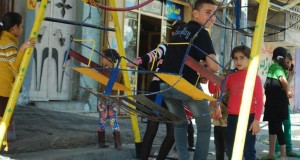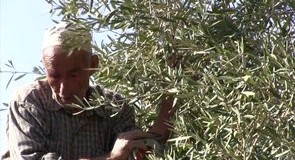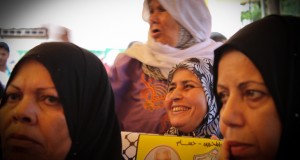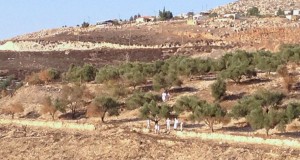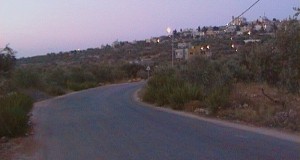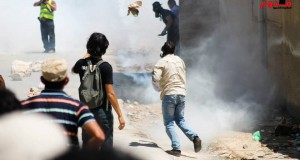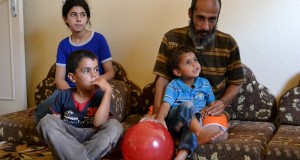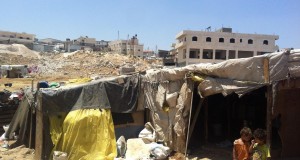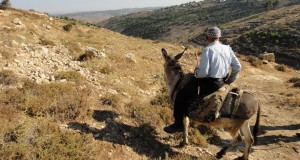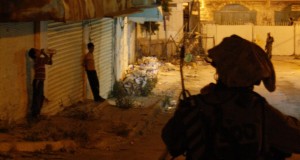18th October 2013 | International Solidarity Movement, Charlie Andreasson | Gaza, Occupied Palestine It’s Eid al-Adha, the festival commemorating Ibrahim, or Abraham as the Christian part of the world knows him, and his willingness to sacrifice his son. He never had ...
Read More »Video: The olive harvest in the Gaza Strip, 2013
16th October 2013 | International Solidarity Movement, Gal·la | Gaza, Occupied Palestine Palestinians in the Gaza Strip harvest olives during the month of October. Several years ago, a large amount of land was planted with olive trees. They were completely destroyed by ...
Read More »Refusing to forget Palestinian political prisoners in Gaza
11th October 2013 | International Solidarity Movement, Charlie Andreasson | Gaza, Occupied Palestine Every Monday here in central Gaza City a demonstration is held, and has been since 1994 or 1995. It was the first time I attended, though I’d probably ...
Read More »Illegal Israeli settlers attack Palestinian farmer attempting to harvest almonds
14th September 2013 | International Solidarity Movement, Nablus Team | Kafr Qalil, Occupied West Bank Late Friday night we received a call to accompany a farmer to harvest almonds early the following morning in Kafr Qalil, a village south of ...
Read More »After Friday protest, Israeli army continues harassing residents of Kafr Qaddum
12th August 2013 | International Solidarity Movement, Anna, Nablus Team | Kafr Qaddum, Occupied Palestine Yesterday afternoon, we received a call from the village of Kafr Qaddum asking for our intervention because the Israeli soldiers had stormed the village and ...
Read More »Welcome to Palestine: tear gas and coffee
10th August 2013 | International Solidarity Movement, Anna, Nablus Team | Kafr Qaddum, Occupied Palestine I came to Palestine last Tuesday and joined the weekly protest held on Friday the 8th of August in Kafr Qaddum. The demonstration represented non-violent ...
Read More »Awad, 19, wounded by Israeli fire while gathering firewood
31st July 2013 | International Solidarity Movement, Rosa Schiano | Gaza, Occupied Palestine On Thursday afternoon, July 25, 2013, a 19 year old, Rafat Awad Abdel Aty was injured while working in an area called “Jamarik” near Beit Hanoun in ...
Read More »Bedouins outside Jerusalem face violence and threats of expulsion
1st July 2013 | International Solidarity Movement, Ramallah Team | ‘Anata, Jerusalem The Bedouin community of ‘Anata suffers daily from the consequences of living just underneath the Apartheid Wall of East Jerusalem; the community is considered unwanted by the Israelis, ...
Read More »Saturdays under the settlements
25th June 2013 | International Solidarity Movement, Khalil team | Hebron, Occupied Palestine Saturday is supposed to be a holy day for the Jewish settlers of the illegal colonies in the West Bank; many don’t work, they don’t turn on ...
Read More »Witness to a child arrest in occupied Hebron
24th June 2013 | International Solidarity Movement, Khalil Team | Hebron, Occupied Palestine Since coming to the West Bank I had heard a lot about the Israeli army detaining and arresting children. Despite this, the first time I saw it ...
Read More » International Solidarity Movement Nonviolence. Justice. Freedom.
International Solidarity Movement Nonviolence. Justice. Freedom.
